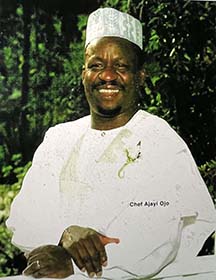by Cosmas Attayi-Elaigu
When national honors are dished out, the elite in politics, business, social and cultural affairs mostly benefit. Rarely has a chef been accorded such recognition. Recently, N...
You are not authorized to read this page without a username and password. It is time to register and subscribe to have unlimited access to everything The Chicago Inquirer has to offer. You can do a monthly, quarterly, six months or yearly subscription.
SUBSCRIBE NOW!!!
and enjoys unlimited access to news, analysis, archives, sports, culture, interviews, and many more.
Not a member? Subscribe or login below:



